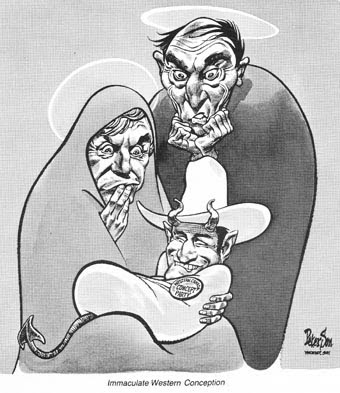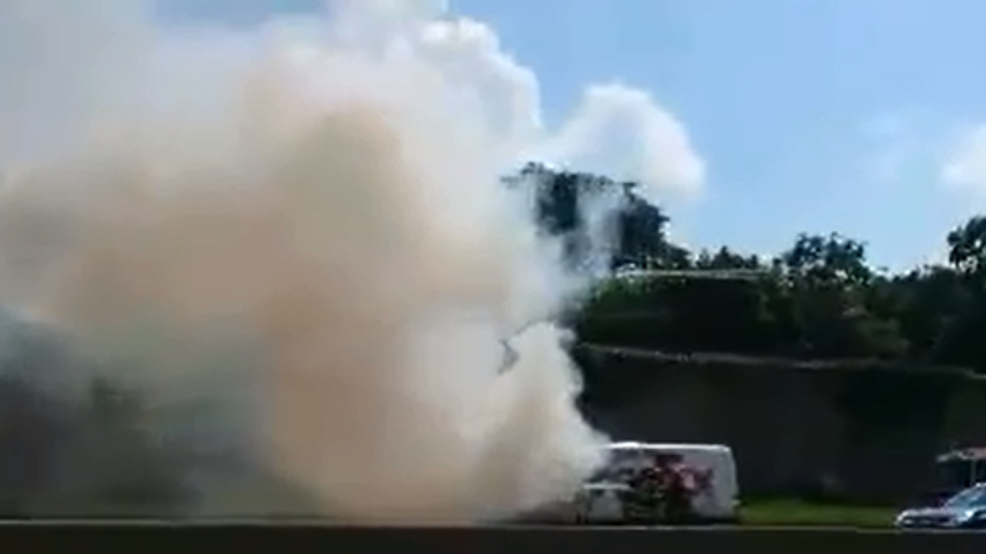Is Western Separation Realistic? A Saskatchewan Political Panel Explores

Table of Contents
The Economic Viability of a Separated West
Assessing Western Canada's Economic Strength
Could a separated West thrive economically? Western Canada boasts significant economic assets. Let's examine its potential for economic independence:
- Resource Wealth: The region possesses abundant natural resources, including vast oil and gas reserves, substantial potash deposits, and significant uranium production. These resources form the backbone of a resource-based economy, providing a potential foundation for an independent state.
- Agricultural Production: Western Canada is a major agricultural producer, contributing significantly to Canada's food supply. The fertile prairies provide a stable agricultural sector capable of generating significant revenue.
- Other Key Sectors: Beyond resources and agriculture, Western Canada also has burgeoning technology sectors, particularly in Alberta and British Columbia. A diversified economy is essential for long-term economic stability.
However, establishing economic independence presents formidable challenges. Negotiating new trade agreements with international partners would be crucial, as would the establishment of a new financial system and central bank. The transition period could be fraught with economic risks and uncertainty.
Potential Economic Disadvantages of Separation
While Western Canada possesses considerable economic strength, secession carries significant economic risks:
- Loss of Access to the Canadian Market: Separation would inevitably lead to trade barriers and a loss of seamless access to the vast Canadian market, potentially crippling businesses reliant on pan-Canadian trade.
- Decreased Investment: Economic uncertainty following separation could deter foreign and domestic investment, hindering economic growth and development.
- Financial Instability: Establishing a new currency and financial system would require careful planning and management to avoid financial instability and potential economic collapse. The transition could be bumpy, impacting fiscal responsibility.
These potential downsides highlight the delicate balance between the region's economic assets and the significant challenges associated with economic independence.
The Political Landscape and Public Opinion
Saskatchewan's Role in the Western Separation Debate
Saskatchewan occupies a pivotal position in the Western separation debate. Its political leanings and the strength of pro- and anti-separation sentiments within the province are critical factors to consider:
- Political Leanings: Saskatchewan's political landscape is often characterized by a blend of progressive and conservative ideologies, reflecting the diverse perspectives on Western separation.
- Public Opinion Polls: Recent polls and surveys reveal a range of opinions on Western separation, indicating a lack of consensus within the province. Understanding these political divides is crucial.
- Separatist Movement Strength: While support for Western separatism exists, it's crucial to assess the actual strength and organization of the separatist movement in Saskatchewan.
Analyzing these factors helps us understand Saskatchewan's crucial role in shaping the future of the Western separation debate.
Challenges of Secession
The path to secession is paved with legal complexities:
- Constitutional Hurdles: Separating from Canada involves navigating the intricacies of the Canadian Constitution, which poses significant legal challenges.
- Legal Challenges: Expect numerous legal battles regarding asset division, resource rights, and other critical matters. The legal process would be lengthy and expensive.
- Negotiating a New Political Entity: The process of establishing a new political entity, including negotiating international recognition and building new governmental institutions, would be arduous and complex.
The legal and political obstacles associated with the secession process cannot be underestimated.
The Panel Discussion's Key Findings
Expert Opinions on Western Separation
The Saskatchewan political panel provided a platform for diverse perspectives on Western separation:
- Expert Analysis: Panelists offered a range of views, highlighting the economic, social, and political implications of secession. Some emphasized the potential economic benefits, while others cautioned against the significant risks.
- Areas of Agreement and Disagreement: Despite differing viewpoints, there was some consensus on the need for further research and dialogue to fully understand the complex implications of Western separation. Specific quotes from the panelists would further illuminate their arguments.
- Western Alienation: The panel extensively discussed the root causes of Western alienation and how addressing those concerns could mitigate the desire for separation.
Unanswered Questions and Future Considerations
The panel discussion, while insightful, left some crucial questions unanswered:
- Long-Term Implications: The long-term impacts of separation on various demographics, including Indigenous populations and different socioeconomic groups, require further investigation.
- Future Steps: The panel highlighted the need for further research and public discourse to gain a comprehensive understanding of the issue before any definitive decisions are made.
Further research is critical to fully understand the implications of this momentous decision.
Is Western Separation Realistic? A Final Assessment
This article explored the feasibility of Western separation, examining its economic viability, the political landscape, and the key findings of a recent Saskatchewan political panel discussion. The economic potential of Western Canada is undeniable, but the economic risks of separation are substantial. The political landscape is complex, with varied public opinions and significant constitutional hurdles. The panel discussion underscored the need for more research and informed public dialogue. While the desire for Western separation reflects real concerns about autonomy and representation, the path to achieving it is fraught with challenges. A definitive answer regarding the realism of Western separation remains elusive, underscoring the complexity of this issue.
Understanding the complexities of Western separation requires ongoing engagement. Continue to research and participate in the debate, forming your own informed opinion on this crucial issue for Canada's future. The debate over Western separation, and specifically its impact on Saskatchewan, warrants continued scrutiny and informed discussion.

Featured Posts
-
 Colorado Gray Wolf Relocated To Wyoming Dies
May 22, 2025
Colorado Gray Wolf Relocated To Wyoming Dies
May 22, 2025 -
 Memes Canada Vs Mexico Liga De Naciones Concacaf Los Mas Graciosos
May 22, 2025
Memes Canada Vs Mexico Liga De Naciones Concacaf Los Mas Graciosos
May 22, 2025 -
 Rum Kartel And Stabroek News Exploring The Cultural Connection
May 22, 2025
Rum Kartel And Stabroek News Exploring The Cultural Connection
May 22, 2025 -
 Thlatht Njwm Jdd Yndmwn Ila Mntkhb Amryka Tht Qyadt Bwtshytynw
May 22, 2025
Thlatht Njwm Jdd Yndmwn Ila Mntkhb Amryka Tht Qyadt Bwtshytynw
May 22, 2025 -
 Lancaster County Fed Ex Truck Catches Fire On Route 283
May 22, 2025
Lancaster County Fed Ex Truck Catches Fire On Route 283
May 22, 2025
